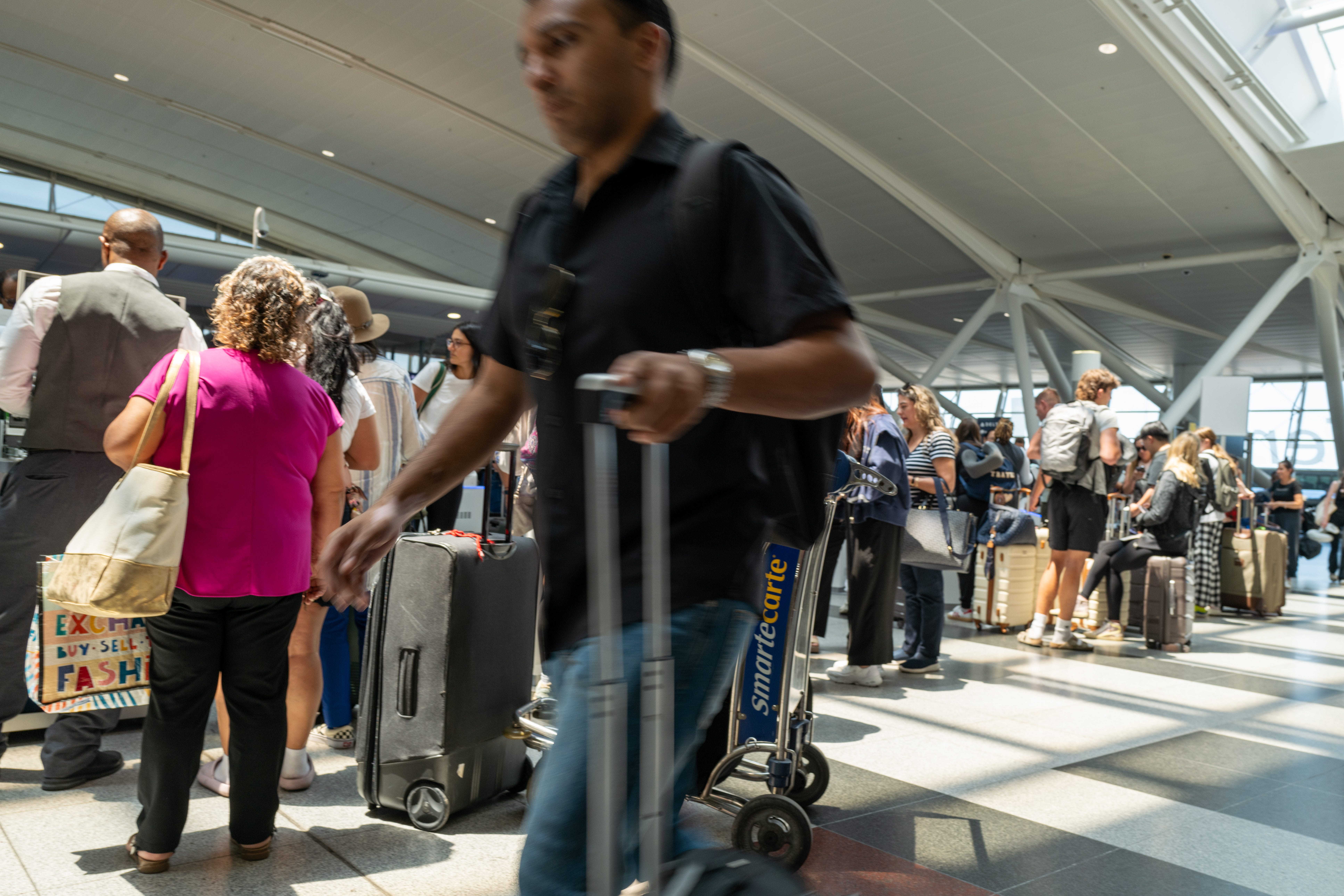Trump Cabinet Member Floats Higher Cruise Taxes. Travelers Shouldn't Worry (yet).

- Most major cruise lines register their ships in foreign countries to benefit from more lenient tax and labor laws.
- Cruise lines currently pay taxes and fees in the U.S., but not federal income tax in the same way other companies do.
Cruise lines will pay more in taxes under President Donald Trump, according to new Commerce Secretary Howard Lutnick.
Lutnick, a billionaire finance mogul who was confirmed by the Senate last week, used the cruise industry’s tax model as an example of "waste, fraud and abuse" during an appearance on Fox News' "Jesse Watters Primetime."
“You ever see a cruise ship with an American flag on the back?” he asked Watters. “They have flags of, like, Liberia or Panama. None of 'em pay taxes … This is gonna end under Donald Trump, and those taxes are gonna be paid.”
However, those comments are unlikely to have any impact on travelers right away. Here’s what to know.
Major cruise lines' ships are typically registered – or "flagged" – in foreign countries. That practice is known as a "flag of convenience."
They are often flagged in countries like the Bahamas, Liberia and Panama. While the companies have their headquarters in Miami, Florida, “they are still able to fly these flags of convenience, and be considered foreign companies, which gives them tremendous advantages over U.S. companies,” Michael Winkleman, a maritime attorney with Lipcon, Margulies & Winkleman, P.A., said in an email. Those countries have more lax tax and labor laws, he said.
U.S. law also requires vessels flagged in the country to be constructed stateside, The Points Guy reported, but American shipyards can't deliver those kinds of large ships consistently. Norwegian Cruise Line's Pride of America is currently the only vessel of a major cruise line flying the U.S. flag. While the construction of the ship began in the U.S. under Project America, the project eventually failed, and NCL purchased the unfinished ship and had it completed in Europe.
The vast majority of cruise ships are built overseas, with 98% constructed in Europe per Cruise Lines International Association, the industry’s leading trade organization.
Yes. CLIA said cruise lines pay at least $2.5 billion in U.S. taxes and fees. That represents 65% of all taxes they pay globally.
"Foreign flagged ships that visit the U.S. are treated the same for taxation purposes as U.S. flagged ships visiting foreign ports, which provides consistent reciprocal treatment across international shipping," the organization said in an emailed statement. "This reciprocity has been enshrined in U.S. tax law with bipartisan support since 1921, which is consistent with the Administration’s 'Fair and Reciprocal Plan' for trade that prioritizes reciprocity to achieve a level playing field."
However, most cruise lines don’t pay federal income tax the way other companies do, Patrick Scholes, a lodging and leisure analyst with Truist Securities, told USA TODAY in an email.
Foreign-incorporated cruise companies are exempt from those costs on most of their stateside activity, Travel Weekly reported. Congressional lawmakers have attempted to raise taxes for cruise companies in the past, but such proposals have "never really gained any material traction," Scholes separately said in a report following Lutnick’s interview.
Lutnick did not share specifics on what form an additional tax on cruises could take. The Department of Commerce did not immediately respond to USA TODAY’s request for comment.
Scholes said that, in his view, consumers won’t see any “immediate” impact.
Norwegian Cruise Line Holdings Ltd. president and CEO Harry Sommer said during a Thursday earnings call that the implications remained unclear. The company was the first major U.S. cruise operator to report earnings since Lutnick’s comments.
"Considering how many moving pieces there are and the complexity of our business, and the complexity – or the variety, if you will – of our deployment and the relatively short amount of time our ships are in U.S. waters, it's really hard for us to speculate on what this would mean to us, so I won't," he said.
However, Scholes told USA TODAY, “Should a tax be imposed, the cruise companies might pass on some or all of this cost to their customers, though this would likely negatively impact demand/sales.” Cruise lines could also sail more ships from international ports to avoid transiting into or out of the U.S., he added in the report.
This story was updated to add new information.
Nathan Diller is a consumer travel reporter for USA TODAY based in Nashville. You can reach him at ndiller@usatoday.com.


